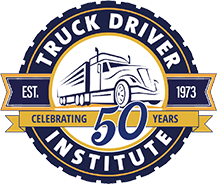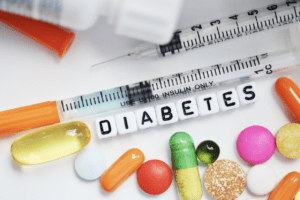Recession Proof Jobs and How to Get One
Whether you’re new to the workforce or interested in a career change, you might be wondering what qualifies as recession proof jobs. Job stability is one of the most important factors in choosing a career, and you want to be sure it won’t be impacted during a recession. To get an idea of how bad the job market can be hit, unemployment rates are the highest they’ve been since the Depression Era in our current recession caused by the COVID-19 pandemic.
To give those interested in a first or new career some peace of mind, here’s a list of ten recession proof jobs.
Ten Recession Proof Jobs
1. Educators
Teachers hold a lot of responsibility in our society. They shape the minds of our youth, educating their students on mathematics, language, art, and science. Much of our society is built on the education of young people, which is why there is good security for elementary and secondary teachers. Even if the economy slows down, education is still a priority, and teachers are there to instruct, mentor, and inspire.
For similar reasons, professors are safely employed during a recession. When one hits, professionals often choose to go back to school as a way to better their employment opportunities. College professors are responsible for cultivating a space where their students can thrive and further their education.
How to get a job as a teacher: hold a bachelor’s degree in education, specializing in either elementary or secondary education. You also need to possess a license in the state where you would like to teach.
How to get a job as a professor: you need to have at least a master’s degree and, in most cases, a PhD in the area you intend to teach.
2. Firefighters, Fire Inspectors and Investigators
Regardless of the state of the economy, fires continue to occur, and firefighters need to be available in the case that a fire breaks out. Some studies have found that fires in vacant buildings peaked during the last recession in 2008, and several of them were started intentionally, keeping inspectors and investigators busy as well.
How to get a job as a firefighter, fire inspector or investigator: minimal requirements include possessing a high school diploma, becoming an EMT, and attending the fire academy.
3. Funeral Director
Funeral directors continue to provide visitations, burials, and other funeral services during a recession. Funeral services are always in high demand, which makes this profession stable during both high points and low points of the economy.
How to get a job as a funeral director: obtain an associate’s degree in mortuary science, though some employers prefer a bachelor’s degree. Funeral directors are often required to go through one to three years of an apprenticeship, and then obtain licensure.
4. Grocers
As we have seen during the current COVID-19 pandemic, grocers are essential so that the public can continue to feed themselves when other options aren’t available. During earlier recessions when restaurants were still open, grocery stores provided a cheaper option than dining out.
How to get a job as a grocer: most grocery stores require a high school diploma or GED, though this is not a requirement for all stores. To own a grocery store, become familiar with the market and follow smart steps for starting a business.
5. Law Enforcement
A position in law enforcement is one of the most recession proof positions to hold. Unfortunately, some communities see an increase in crime during a time of economic struggle, making professions in law enforcement a necessity.
How to get a job in law enforcement: possess a high school diploma or GED., complete training, and attend the academy. Becoming a detective requires all this, years of experience, and several months of specific training. The requirements vary by state.
6. Medical Professionals
A recession doesn’t stop people from getting sick. And, in the current pandemic, medical professionals are some of our most essential workers. During a recession, people tend to have higher levels of stress, which can impact their immune system negatively, causing higher rates of sickness.
How to get this job: depending on the profession, the education can be minimal. For some nurse-specific professions, the minimum requirement is obtaining an associate’s degree, though a bachelor’s is more often required. To become a doctor, regardless of the specialization, a doctorate is required.
7. Mental Health Professionals
For many people, their mental health suffers during a recession, which makes mental health professionals necessary to ensure the well-being of others. Stress levels, marital issues, and substance abuse are just a few examples of what can occur during this time. Mental health professionals – whether they are psychologists, counselors, therapists, psychiatrists, or substance abuse counselors – see an uptick in patients, keeping them busy during a recession.
How to get this job: a master’s degree is required for counselors, therapists, and substance abuse counselors. Psychologists and psychiatrists require a doctorate.
8. Public Utility Workers
Our homes and workplaces still need electricity, natural gas, water, sewer service, telephones, and Internet during a recession, which makes a position as a public utility worker a recession proof job.
How to get this job: education requirements vary for these positions. However, all require a high school diploma or GED, and most require undergoing training programs.
9. Social Workers
Like mental health workers, social workers can help those who need it to cope with their problems. The professions differ in the social worker’s degree of involvement outside of the sessions. Many social workers assist families with finding government funded programs to assist them during a time of economic hardship. And because most social workers are employed by the public sector, employment often does not decrease during recession.
How to get this job: a master’s degree in social work is required.
10. Truck Driver
As companies continue to use or produce goods, truck drivers are needed to get materials from point a to point b. While some industries suffer during a recession, others continue to prosper. The nice thing about being a truck driver is that you don’t have to worry about what product is in demand, only that there is a product that needs to be delivered.
How to get this job: obtain a Commercial Driver’s License by attending a truck driving school.
Attend Truck Driver Institute to Start Your Recession Proof Job
Recessions are difficult for many reasons, but one way to avoid the drawbacks of a recession is to know that you have job security. As we’ve mentioned, truck drivers are needed during a recession to get products to where they need to go.
At Truck Driver Institute, we pride ourselves on the exceptional training program that we provide. Here are some highlights of our program:
- Receive your truck driver’s license in just three weeks
- Graduates have a job placement of over 80%
- Competitive financial aid options
- Great pay and benefits in the trucking industry
- Classes offered at 11 locations across seven states
Starting a career as a truck driver can give you peace of mind when it comes to job security. The world keeps running, so truck drivers need to keep driving. Let us help you get onto the open road where you stay through thick and thin.
If becoming a truck driver sounds like the right opportunity for you, contact us today. We look forward to speaking with you soon.
Get Started
Get your Class A CDL in our friendly, supportive CDL training program. TRAIN with experienced instructors – multiple good-paying, secure job choices with benefits available for eligible graduates. EARN $700 – $1000+ / week to start as a truck driver. Get started today by filling out the form below. We look forward to hearing from you!




